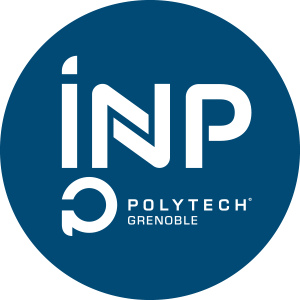Number of hours
- Lectures 8.0
- Projects -
- Tutorials 8.0
- Internship -
- Laboratory works -
- Written tests 2.0
ECTS
ECTS 0.34
Goal(s)
Implementation of concepts, tools, and general principles of material strength. Gradual acquisition of the notion of deformable bodies with the well-known approximations of beam theory. Understanding the fundamentals of material mechanics and solving problems related to beams in extension.
Content(s)
1 Principles and basic concepts
1.1 Introduction; Basic assumptions; Resolution method.
1.2 Behavior classes
1.3 Objects and bases of the resistance of materials
2 Traction - Compression
2.1 Normal stress in a straight section
2.2 Condition of tensile strength
2.3 Open-walled thin-walled cylinder
2.4 Compressive strength condition
2.5 Fatigue stress concentration
3 Preliminaries to bending and twisting
3.1 Study of Planes surfaces
3.2 Moments of inertia
3.3 Huyghens theorem
3.4 Inertia Products
3.5 Principal moments of inertia.
4 Flexion
4.1 Definition; Hypotheses ; Experiences
4.2 Normal stress and deformation
4.3 Relationships between shear and bending moment
4.4 Equation of the deformed.
5 Twist
5.1 Definition; Hypotheses ; Moment of polar inertia
5.2 Constraint of Torsion shear
5.3 Angle of torsion
5.4 Torsion resistance condition.
RENDU, EXAM
The course exists in the following branches:
- Curriculum - MAT - Semester 8
Course ID : KAMA8M06
Course language(s): 
You can find this course among all other courses.
Références bibliographiques :
• A. GIET et L. GEMINARD : “ Résistance des Matériaux ”, Tomes 1 et 2, Collection Technologie et Université, Dunod.,
• C. MASSONET et S. CESCOTTO : “ Mécanique des Matériaux ”, Collection Bibliothèque des Universités, De Boeck-Wesmael.
• I.H. Shames et C.L. Dym : “ Energy and Finite Element Methods in Structural Mechanics ”,
• Taylor and Francis. S. Timoshenko et J.N. Goodier : “ Theory of Elasticity ”,
• McGraw Hill. SFM (Société Française des Mécaniciens) : “ Guide
de Validation des Progiciels ”, AFNOR



